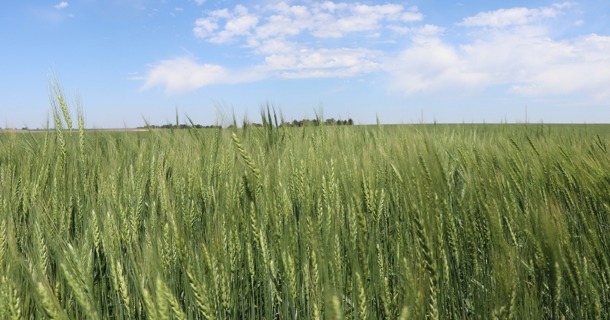Terminating a Verbal Farm Land Lease

Some farm leases are not written but are verbal or "handshake" agreements. Because nothing is in writing, the parties may have different recollections of their agreement, making lease disputes more difficult to resolve. The most common legal issue associated with verbal farm leases is how a lease may legally be terminated. For verbal leases in Nebraska, six months advance notice must be given to legally terminate the lease. In contrast, the termination of a written lease is determined by the terms of the written lease. If the lease does not address termination, the lease automatically terminates on the last day of the lease.
Terminating verbal leases
For verbal leases, the Nebraska Supreme Court has ruled that the lease year begins March 1. Notice to a tenant to vacate under a verbal or handshake lease (legally referred to as a "notice to quit") must be given six months in advance of the end of the lease, or no later than September 1. This rule applies regardless of the type of crop planted. Those with winter wheat should consider providing notice before it is time to prepare wheat ground for planting.
For example, for the lease year beginning March 1, 2026, and ending Feb. 28, 2027, notice from the landlord that the lease will be terminated would have to be received by the tenant no later than Sept. 1, 2025. The lease would then expire Feb. 28, 2026, with the new tenant (or new buyer) able to take over the lease March 1, 2026. If, however, the notice to quit were given (or received) after Sept. 1, 2025, the existing tenant would have the lease until Feb. 28, 2027.
Notice should be provided to the tenant for either lease termination or changing lease provisions. A verbal termination notice might be adequate but could be difficult to prove in court if litigation were necessary to enforce the lease termination. It is recommended that the farmland lease be terminated by Registered Mail™. This means that the person receiving the letter signs for it, providing evidence that the termination notice was received. The University of Nebraska-Lincoln does not provide sample lease termination letters. If you need guidance, consult your attorney.
Pasture Lease Terminations
Handshake or verbal leases are different for pastures. The typical pasture lease is for the five-month grazing season rather than the entire year. The lease is only in effect for that time, so the lease is terminated at the end of the grazing season; however, different lease length arrangements can be made in a written lease, and that would be followed if in effect.
Importance of Good Communication Regardless of the type of lease - written, verbal, or even multiple year - the landlord should have clear communication with the tenant. By sending a termination notice before September 1, even for written leases, you can avoid any miscommunication or pitfalls.
Written Leases
In all instances, written leases would be preferred over oral or “handshake” leases. Sample leases are available in the Document Library at aglease101.org and can help both parties start thinking about the appropriate lease conditions for their situation before they consult an attorney to draft a lease or review a proposed lease. The Ag Lease 101 site was developed by university extension specialists in the North Central Region but is not a substitute for personal legal advice.
###
Nebraska Extension is a Division of the Institute of Agriculture and Natural Resources at the University of Nebraska–Lincoln cooperating with the Counties and the United States Department of Agriculture. Nebraska Extension educational programs abide with the nondiscrimination policies of the University of Nebraska–Lincoln and the United States Department of Agriculture.
